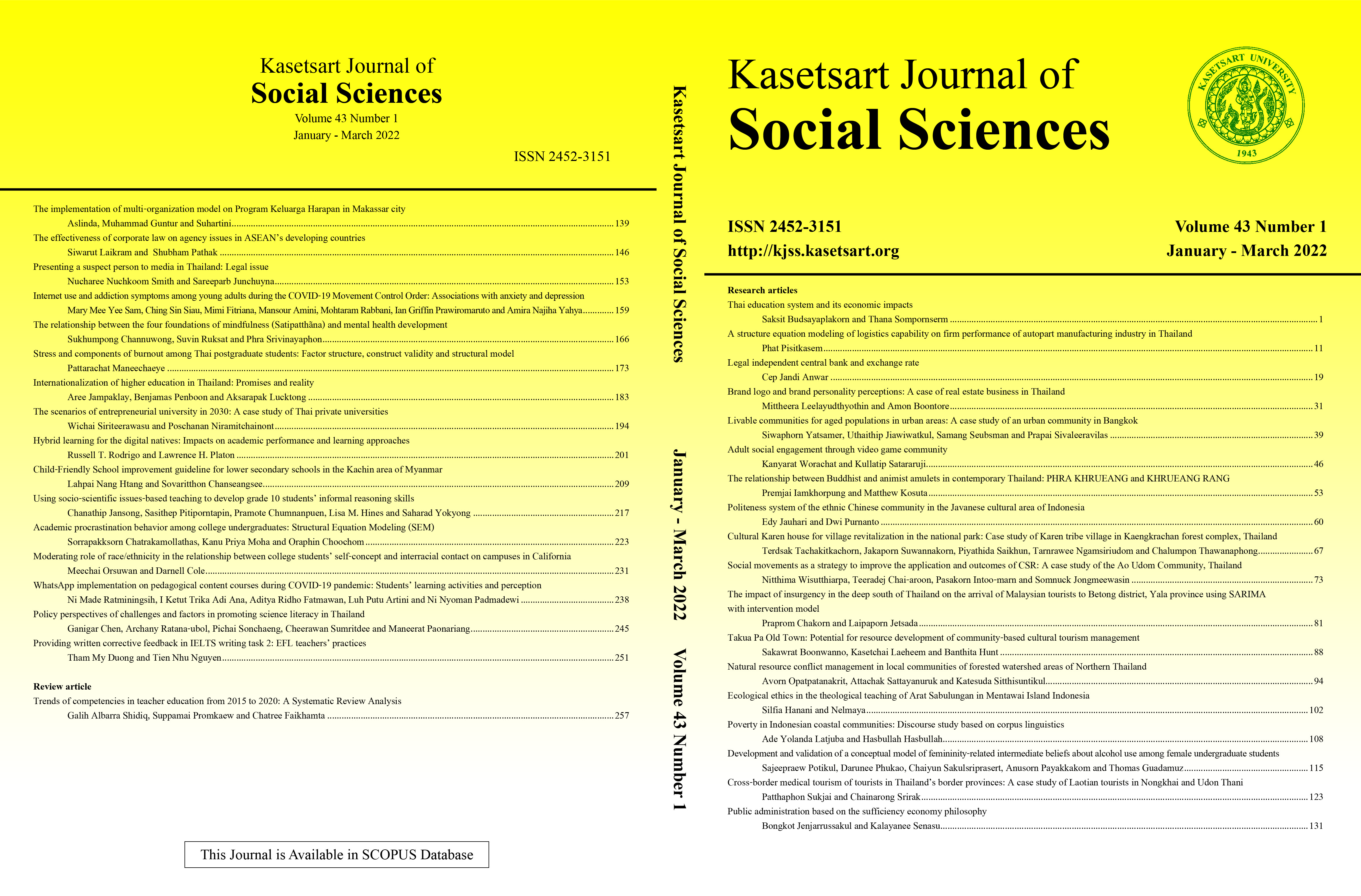Presenting a suspect person to media in Thailand: Legal issue
Keywords:
arrest warrant, criminal law, criminal suspect, human rights, Thai police regulationsAbstract
Human rights in Thailand are protected under the Thai Constitution of B.E.2560
(2017). The Criminal Procedure Code seeks to protect personal human rights
under section 66. Thailand became a signatory to the Universal Declaration of
Human Rights in 1948. Contrary to these protections, the National Police Agency Regulations allow police to present a suspect person before the media. Presenting a suspect person before the media brings dishonour to such person and their family as the suspect person can be assumed to be a lawbreaker in the public view, even as the legal procedure is just beginning. The impact is exacerbated by the ready access of the public to media such as TV Channels, newspapers, Line, YouTube and Facebook. Moreover, if the case is likely to be of particular interest to the public, the highest-ranking police officers will conduct the media conference. The conference often includes an outline of the case and the presenting of the suspect. Often the highest-ranking officers conduct the conference by themselves even though they have very little input into the early investigation. It appears that presenting a suspect person to the media is undertaken essentially to obtain positive press coverage. This regulation is considered to be contrary to the principles and will of the Constitution, the Criminal Procedure Code and the Universal Declaration on Human Rights. This article provides a series of recommendations so that all parties, especially law enforcement officials and the press, protect the human rights of both the accused and the victim.
Downloads
Published
How to Cite
Issue
Section
License

This work is licensed under a Creative Commons Attribution-NonCommercial-NoDerivatives 4.0 International License.
This is an open access article under the CC BY-NC-ND license http://creativecommons.org/licenses/by-nc-nd/4.0/










